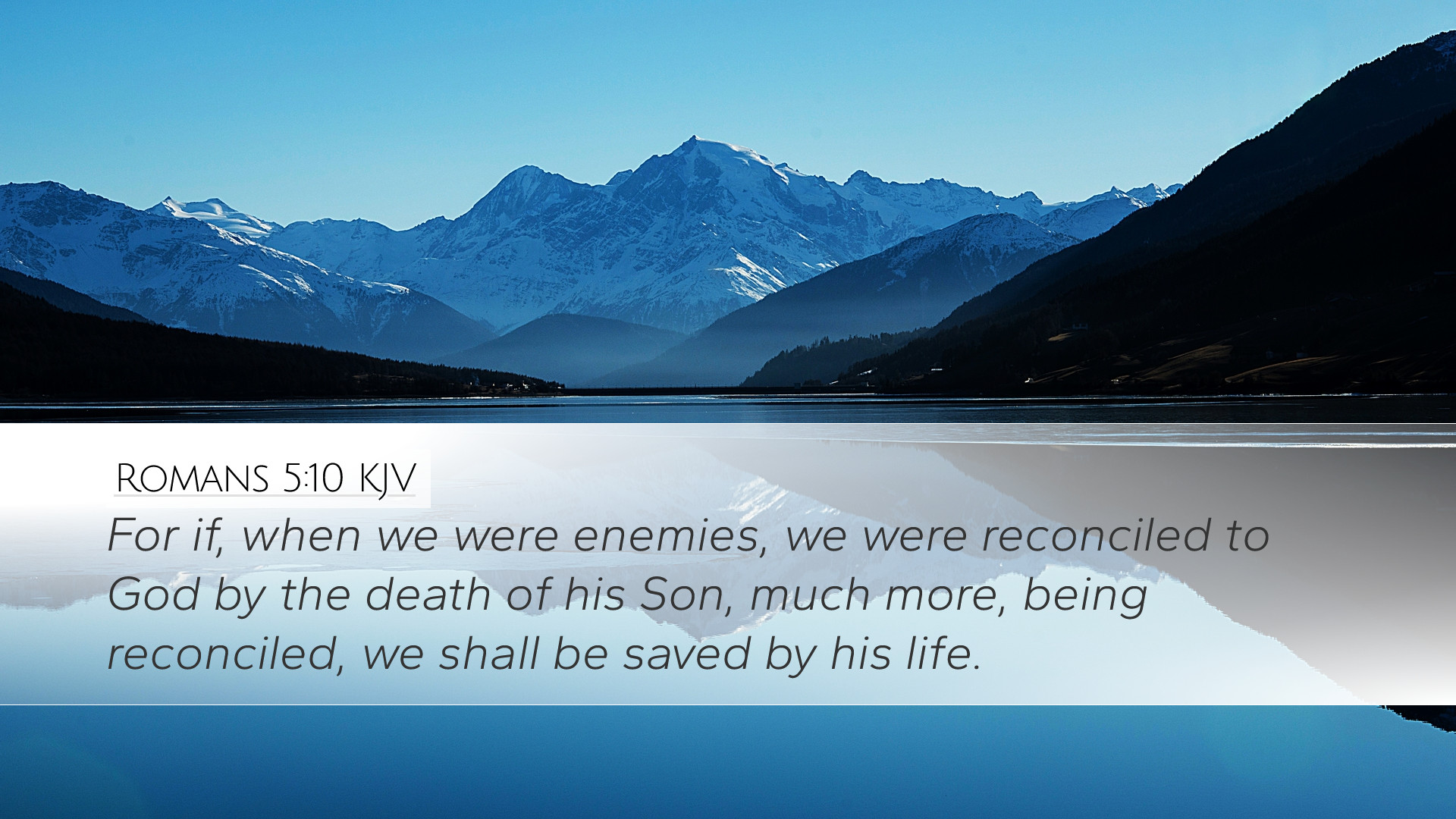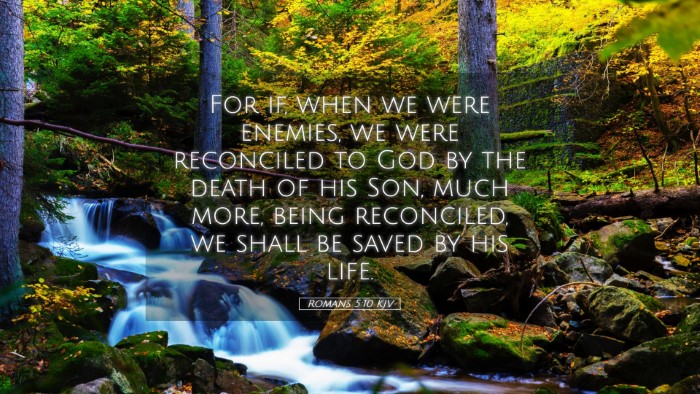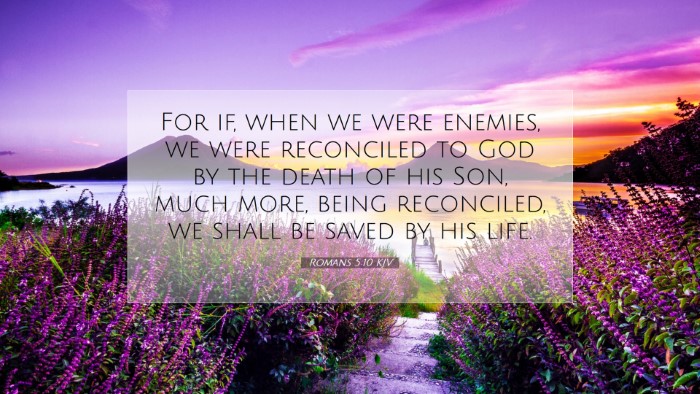Old Testament
Genesis Exodus Leviticus Numbers Deuteronomy Joshua Judges Ruth 1 Samuel 2 Samuel 1 Kings 2 Kings 1 Chronicles 2 Chronicles Ezra Nehemiah Esther Job Psalms Proverbs Ecclesiastes Song of Solomon Isaiah Jeremiah Lamentations Ezekiel Daniel Hosea Joel Amos Obadiah Jonah Micah Nahum Habakkuk Zephaniah Haggai Zechariah MalachiRomans 5:10
Romans 5:10 KJV
For if, when we were enemies, we were reconciled to God by the death of his Son, much more, being reconciled, we shall be saved by his life.
Romans 5:10 Bible Commentary
Commentary on Romans 5:10
Text of Romans 5:10 (KJV): "For if, when we were enemies, we were reconciled to God by the death of his Son, much more, being reconciled, we shall be saved by his life."
Introduction
This verse is a profound statement of the Christian doctrine of reconciliation. It encapsulates both the gravity of man's enmity against God and the magnitude of the salvation made available through Jesus Christ. The insights from various public domain commentaries serve to deepen our understanding of this rich theological theme, highlighting key elements such as the nature of our relationship with God, the redemptive work of Christ, and the implications of our reconciliation.
Contextual Analysis
Matthew Henry emphasizes that understanding this verse requires looking at the broader context of Romans 5. Here, Paul discusses the peace that believers have with God through justification. This reconciliation is not merely theoretical; it encompasses a transformative relationship that alters our status from enemies to children of God.
Enemies of God
Henry notes that the existence of enmity toward God is a direct outcome of sin. Before we come to Christ, we are in a state of rebellion against our Creator. Adam Clarke elaborates on this theme, indicating that it is not God's fault that humanity finds itself at odds with Him. Rather, it is due to the fall of man, which introduced sin and alienation.
The Death of Christ
Albert Barnes highlights that the reconciliation mentioned comes at a great cost—the death of Christ. This act not only addresses God's justice but also demonstrates His love. The death of Christ serves as the pivotal moment for believers, where divine grace supersedes judgment.
Much More Saved by His Life
The phrase "much more" signifies the assurance of salvation through the resurrection of Christ. Henry comments that if reconciliation is achieved through so great a sacrifice, then the promise of salvation is all the more certain. This perspective is echoed by Clarke, who asserts that the resurrected life of Jesus provides the believer with ongoing victory over sin and death.
Theological Implications
- Reconciliation: This doctrine is central to Christian theology. Paul asserts that through Christ's death, believers are reconciled to God. This reconciliation signifies that hostility has been removed and peace has been established.
- Justification and Salvation: The commentary from Barnes discusses the difference between justification (being declared righteous) and the process of sanctification (becoming holy). This verse encapsulates both concepts, indicating that those justified by faith are assured of continued salvation.
- Transformation of Identity: The transition from enemies to reconciled individuals in Christ signifies a new identity. Clarke emphasizes that believers are not just restored; they are given new life, suggesting an ongoing relationship with the living Christ.
Pastoral Reflections
This verse presents a powerful message for pastors and congregations alike. The notion that we were once enemies of God should evoke humility and gratitude in believers. Henry suggests that this understanding fosters a spirit of worship, and it urges Christians to extend grace to others.
Moreover, the assurance that “we shall be saved by his life” provides a foundation for pastoral care. It reassures believers of God's faithfulness and the potency of His saving work, which remains active in the lives of those who trust in Him.
Conclusion
In sum, Romans 5:10 serves as a cornerstone for understanding the depth of God's love, the efficacy of Christ's death, and the assurance of salvation for those reconciled to Him. Drawing from the insights of Matthew Henry, Albert Barnes, and Adam Clarke, we recognize the significance of our transformation from enemies to heirs. For pastors, students, and theologians, this passage invites deeper contemplation on the nature of our relationship with God and the implications of being saved by His life.


